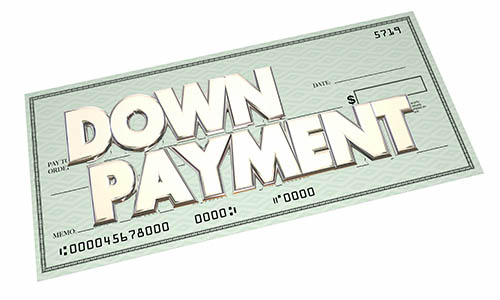 From finding the right agent to discovering the home you can truly feel comfortable in, there are a variety of things involved in the home buying process. However, it’s important not to get caught up in the home and ignore altogether the community you’ll be living in. If you’re planning a move to a new neighborhood, here are some things you should look into before putting in an offer.
From finding the right agent to discovering the home you can truly feel comfortable in, there are a variety of things involved in the home buying process. However, it’s important not to get caught up in the home and ignore altogether the community you’ll be living in. If you’re planning a move to a new neighborhood, here are some things you should look into before putting in an offer.
Local Amenities
A peaceful, picturesque community is ideal, but if there are not a lot of resources nearby for your family, it’s possible that your new neighborhood may not be the best fit. Instead of having to get in the car and drive everywhere, ensure you research nearby community centers, green spaces and recreational spots so your family has somewhere to spend their weekends.
Research The Crime Rate
You can certainly get a good sense of the well being of a community just by looking at it, but be sure that you’re informed about exactly how safe the surrounding area is so your family will feel at ease in their new locale. While you can easily research the community and find information online, websites like Neighborhood Scout and Crime Report also make it simple to discover the less well-known details.
Transportation And Accessibility
A community you love is ideal, but if you work in the downtown core or an area far away, it will be important to determine the effect this will have on the length of your commute. In addition, you’ll want to be sure there are local transportation options like buses and shuttles that provide access all over the center in the event that it’s needed.
Learn About The Locals
There’s something to be said for the perfect home, but you’ll also need to feel a certain sense of comfort in the place you live so ensure you choose a place with nice neighbors and a community feel. This may seem hard to determine before buying a house, but try visiting the local community center or knocking on a few doors for a quick impression of what the locals are like.
It can be easy to throw everything else out the window as soon as you’ve found the perfect home, but it’s important that your home is situated in a neighborhood you’ll feel comfortable in. Contact your local real estate professional for more information.
 Many homebuyers struggle with finding a home that is within their price range, but many of those perusing the market also struggle when it comes to the search. If you’re currently in the real estate market and are having difficulty finding a good selection of homes, here are some ways to expand your search so you can find an opportunity you’re prepared to invest in.
Many homebuyers struggle with finding a home that is within their price range, but many of those perusing the market also struggle when it comes to the search. If you’re currently in the real estate market and are having difficulty finding a good selection of homes, here are some ways to expand your search so you can find an opportunity you’re prepared to invest in. One of the factors involved in feeling truly comfortable in your community is the relationships that you’ve been able to establish with the locals in your neighborhood, but it can be hard to know how to nurture a good relationship. Whether you’re moving to a new home soon or are wondering how to make some nearby friends, here are some simple tips for ingratiating the ones that live closest to you.
One of the factors involved in feeling truly comfortable in your community is the relationships that you’ve been able to establish with the locals in your neighborhood, but it can be hard to know how to nurture a good relationship. Whether you’re moving to a new home soon or are wondering how to make some nearby friends, here are some simple tips for ingratiating the ones that live closest to you. A home inspection may be one of the last things that needs to be done before the deal is sealed. However, it’s very important to have a proper inspection done so that you can ensure you’re offering price is appropriate for the home you’re getting. If you’re prepping for an inspection soon, here are some things you’ll want to consider beforehand.
A home inspection may be one of the last things that needs to be done before the deal is sealed. However, it’s very important to have a proper inspection done so that you can ensure you’re offering price is appropriate for the home you’re getting. If you’re prepping for an inspection soon, here are some things you’ll want to consider beforehand. Sometimes a move is unavoidable, regardless of how much you or your kids’ would rather stay in your current home. If your young ones are not looking forward to a change in scenery, here are a few tips to help them make a smoother transition into their new home.
Sometimes a move is unavoidable, regardless of how much you or your kids’ would rather stay in your current home. If your young ones are not looking forward to a change in scenery, here are a few tips to help them make a smoother transition into their new home. One of the challenges you will face when deciding how much money to put down on your new home is whether to put down a larger down payment or to take a bit of money from your down payment and use it to pay “discount points” to lower your interest rate.
One of the challenges you will face when deciding how much money to put down on your new home is whether to put down a larger down payment or to take a bit of money from your down payment and use it to pay “discount points” to lower your interest rate. Whether or not you’re new to real estate, there’s little doubt that you’ve heard the term down payment as it relates to purchasing a home. There’s a lot of different information out there in regards to how much this figure should be and it can be hard to determine exactly what the importance of this payment is. If you’re trying to determine the ideal amount to put down, here are some things to consider.
Whether or not you’re new to real estate, there’s little doubt that you’ve heard the term down payment as it relates to purchasing a home. There’s a lot of different information out there in regards to how much this figure should be and it can be hard to determine exactly what the importance of this payment is. If you’re trying to determine the ideal amount to put down, here are some things to consider. Some people love living in condos, while others swear by detached homes. When it comes to deciding between the two, however, you can’t always rely on someone else’s word.
Some people love living in condos, while others swear by detached homes. When it comes to deciding between the two, however, you can’t always rely on someone else’s word. Are you currently shopping for a new home? While it’s true that real estate transactions can be stressful, this stress can be minimized by following a few simple tips. For example, following proper etiquette plays a big role in making your real estate experience go smoothly, and in this post we’ll share four key etiquette tips that are sure to help.
Are you currently shopping for a new home? While it’s true that real estate transactions can be stressful, this stress can be minimized by following a few simple tips. For example, following proper etiquette plays a big role in making your real estate experience go smoothly, and in this post we’ll share four key etiquette tips that are sure to help. While making a real estate purchase can be filled with many questions, buying to invest in a long-term property can be even more confusing. If you’re looking into investing in real estate and wondering what variables to consider, here are a few tips that you’ll want to keep in mind before deciding on an investment property.
While making a real estate purchase can be filled with many questions, buying to invest in a long-term property can be even more confusing. If you’re looking into investing in real estate and wondering what variables to consider, here are a few tips that you’ll want to keep in mind before deciding on an investment property.